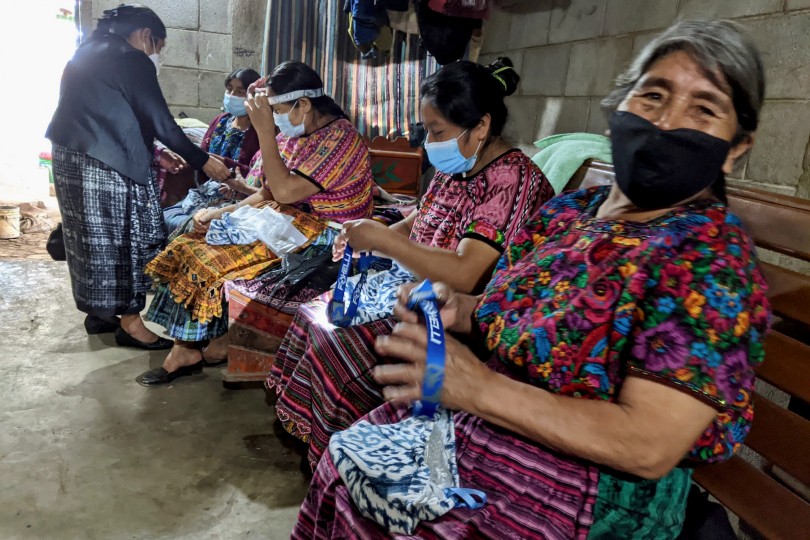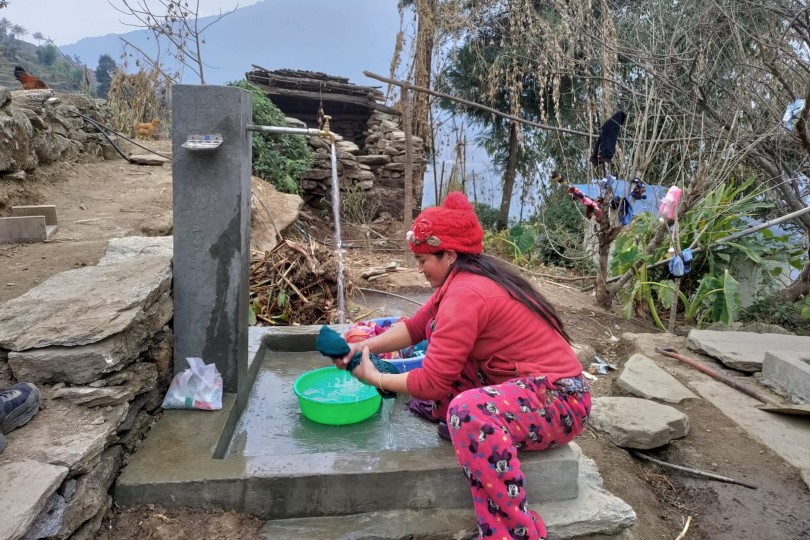How does travel 'build back better' from Covid-19?
 James Chapple
James ChappleBuild back better. It’s the mantra that just keeps coming back around. But what does it actually mean for travel – the sector hit hardest by the coronavirus crisis according to the Office for National Statistics?
Travel does much right; it is an industry with a social conscience, it connects people, broadens minds and is rightly celebrated for being a purveyor of dreams – a commodity that has been in short supply over the past 12 months.
But travel cannot yet claim to be wholly virtuous; aircraft and cruise ships contribute to polluting our atmosphere and our oceans. And while supply continues to grow to meet demand, there will continue to be overtourism of certain regions, cities and major natural attractions.
Building back better evokes efforts to cut carbon emissions, promote fairness and social equality, and pursue diversity and inclusion. But Explore co-founder Derek Moore suggests reframing the debate to focus instead on talking and, crucially, giving back.
In 2019, Moore set up The Derek Moore Foundation, working with operators and travel professionals to identify and fund “quirky” projects in small communities. Projects are capped at £5,000 – think a water pipeline for a Nepalese mountain village (pictured below), birth kit equipment for midwives in a remote Guatemalan community (pictured above), or a recording studio for street kids.
For Moore, travel and tourism is too often about one-way transactions. “Lots of people who have been trekking in Nepal, white-water rafting in Peru, or spent time as a tourist in a developing country come home affected by the state of the villages they visited and the villagers they met,” he explains.
“But what they participate in is a one-way transaction. They go, take photos, drink the limited supply of water and eat at the village restaurant which, while making a bit of money, uses up a lot of the available food. I felt that if we position ourselves as a means to give something back when people go abroad, it might tap into that feeling people have that they must be more responsible in their tourism.”
Moore compares efforts to stimulate two-way transactions to those it took to raise awareness of the environment and climate change. “If you asked someone 20 years ago for their thoughts on the environment, they’d want a dictionary. Yet we’ve managed to bring it into people’s thinking.
“This idea of building back better, giving something back, needs people to discuss it. It’s not bragging. People must see the remarkable things that are being done. It’s commercially smart too. Increasingly, clients are choosing their operator by looking for those doing good. I will feel we’re getting somewhere when I talk to someone about giving back and they know what I mean.”
Charitable Travel, a new “social enterprise” travel agency, is one such operation built around this very concept of giving back. It allows clients to make a donation to a charity of their choice when they book, at no extra expense to them, and also reinvests profits into good causes.
'Front line'
For two-way transactions to work, though, listening is every bit as important as talking, says Responsible Travel chief executive Justin Francis. “The most important views, those of local residents, are too rarely sought,” he argues. “In an industry full of marketing about seeing places ‘through local eyes’, it’s important to recognise ourselves as foreigners and guests in other people’s homes.”
Francis hopes time spent in our own local communities under Covid lockdown translates into how we travel. “I hope we’ll be mindful of residents and ensure our holidays benefit the places we visit,” he says.
If both Francis and Moore's hopes of change are to come to fruition, travel sellers, their operator partners and their clients will have to start having these conversations.
Karen Simmonds, founder of London-based agency Travel Matters and the Travel Matters Campaign, has for more than 20 years been promoting “conscious travel experiences” to clients. The agency has a downloadable Make Our Travel Matter guide on its website, where the team and invited guests also write blog posts on issues of responsible travel, but it is their conversations with clients that matter most.
“There was a time when we spoke a lot about overtourism and the plight of the visitor economy,” says Simmonds. “Now, we are starkly reminded of the extreme case – no tourism – due to the pandemic.”
Simmonds believes this absence of travel will result in people re-evaluating their relationships with others and with the environment. Travel businesses must, she says, stand up for key issues such as diversity, inclusion, human rights, improvement of livelihoods, elimination of food poverty and better mental and physical health, and contribute to positive social and economic change.
“We’re dedicated to showing how travel, when done right, can impact the world in a positive manner using tourism as a force for good,” Simmonds adds. “As travel advisors on the front line of selling travel, it’s important we recognise tourism involves the destination as a whole – eco-systems, natural resources and the community’s cultural assets and traditions. What we say and what we do is more important than ever as we plan ahead.”
Collaboration
With outbound leisure travel from the UK likely to resume this summer, Abta’s head of sustainability Clare Jenkinson says it will be important people travel responsibly in the knowledge the world’s recovery from Covid will be inequitable, and that wearing masks and adhering to social distancing may yet be required in some destinations.
Other priorities include decarbonising tourism through sustainable fuels, as well as electric and hydrogen propulsion; ensuring tourism benefits destination communities; and ensuring tourism supports proper destination management, bringing together the voices of locals, businesses and travellers.
“Respecting the needs of everyone and the environment will be critical,” says Jenkinson.
She adds that she has been encouraged by efforts to embrace sustainability during a time of crisis. “As companies rethink their business models, many are doing so with sustainability in mind – whether that’s planning tours that maximise the benefit to communities, or positioning themselves as leaders on decarbonisation and tackling climate change.”
Destinations are also using this time to rethink their tourism strategies, says Jenkinson, with sustainability proving fundamental to many.
While travel and tourism is yet to build back, let alone build back better, there is a blueprint for how this can be achieved and a real sense that Covid may have created a landscape more receptive than it has ever been to the kind of seismic shifts necessary to forge a better future for all.
Sign up for weekday travel news and analysis straight to your inbox

James Chapple
Supplier Directory
Find contacts for 260+ travel suppliers. Type name, company or destination.













